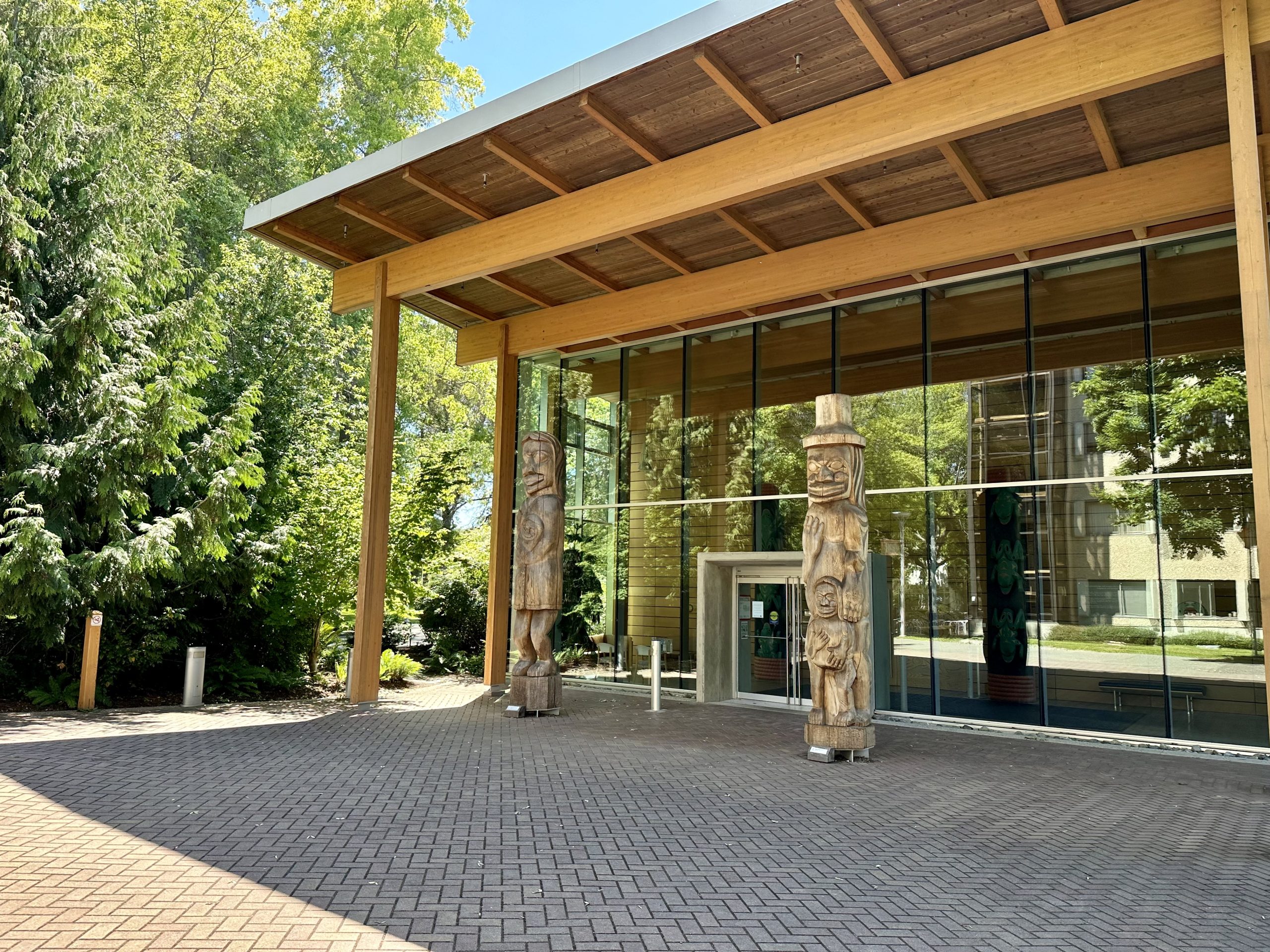First Master’s graduates cross the stage since school’s closure in 2018

Photo by Sydney Lobe.
The first graduates of UVic’s School of Indigenous Governance (IGOV) Master’s program have crossed the stage since its temporary closure in 2018.
IGOV is internationally recognized for its contributions to the study of Indigenous governance.
“Our Indigenous governance program is recognized worldwide for its accountability and relevance to Indigenous communities,” reads the IGOV admissions website.
IGOV is made up of three streams: the Master’s in Indigenous Governance, the PhD in Indigenous Governance, and the Indigenous Nationhood certificate, the latter of which is available for UVic graduate students enrolled in Indigenous governance, political science, or law.
In 2018, IGOV was suspended due to concerns surrounding discrimination and hyper-masculinity. Following the receipt of a student complaint in June 2017, UVic administration launched a formal review of IGOV, which included interviews with 30 students and faculty members. The review resulted in Dr. Taiaiake Gerald Alfred, the director at the time, resigning and the program’s temporary suspension.
In 2021, Dr. Hōkūlani K. Aikau was hired alongside Dr. Dawn Smith and Dr. Gina Starblanket to rebuild the program. Aikau, who was a mid-career senior scholar at the time, took over as the Director of the renewed IGOV School. She was previously a professor at the University of Hawai‘i at Mānoa, and later, a senior fellow at the University of Utah, where she helped lead the establishment of the Pacific Islands Studies certificate. While at the University of Hawai‘i at Mānoa, Aikau became familiar with UVic’s IGOV School due to the schools’ partnership at the time.
Dr. Devi Dee Mucina and Dr. Heidi Stark joined Aikau, Smith, and Starblanket to collectively rebuild the program. Aikau says that the vision of the group was to continue the previous community work done by IGOV while bringing in the element of gendered analysis.
“The five of us were the team tasked with the responsibility of reopening IGOV, again with th[e] same vision for continuing to do innovative graduate student training, being Indigenous grounded and Indigenous centred — that means centering Indigenous knowledges, practices, values, beliefs – and also centering a gendered analysis, and specifically an Indigenous feminist analysis to the work,” said Aikau.
Michael Chutskoff, who is now a PhD student in UVic’s Department of Political Science, was the first graduate of the renewed program and crossed the stage in the Fall 2023 graduation ceremony.
Chutskoff decided to apply for the program right as applications were re-opening.
“My understanding [of IGOV] at the time was, oh, well, it’s not like Indigenous studies, it’s a little bit different, a little more, in some ways, political,” said Chutskoff.
Chutskoff says being a part of the first cohort also meant being the “guinea pigs.” Challenges to the renewal of the program included the COVID-19 pandemic and figuring out the program structure.
However, Chutskoff says the program renewal has been successful.
“It’s very inclusive and … you can tell that the work has been done to really reshape how this program is operated and it’s really refreshing that this IGOV program is by and for Indigenous peoples,” said Chutskoff. “It’s really nice to have that space for Indigenous scholars and activists to further their education and push themselves in a way that isn’t dismissive of their prior experiences.”
Like Aikau, Chutskoff has witnessed the renewed IGOV’s focus on Indigenous feminisms and gendered analysis, noting an inclusivity toward queer, gender non-conforming, and gender diverse experiences.
“[The IGOV program] has been a very integral, informative program that’s launched me in the direction that I’m in, as somebody whose now doing a PhD,” said Chutskoff.






